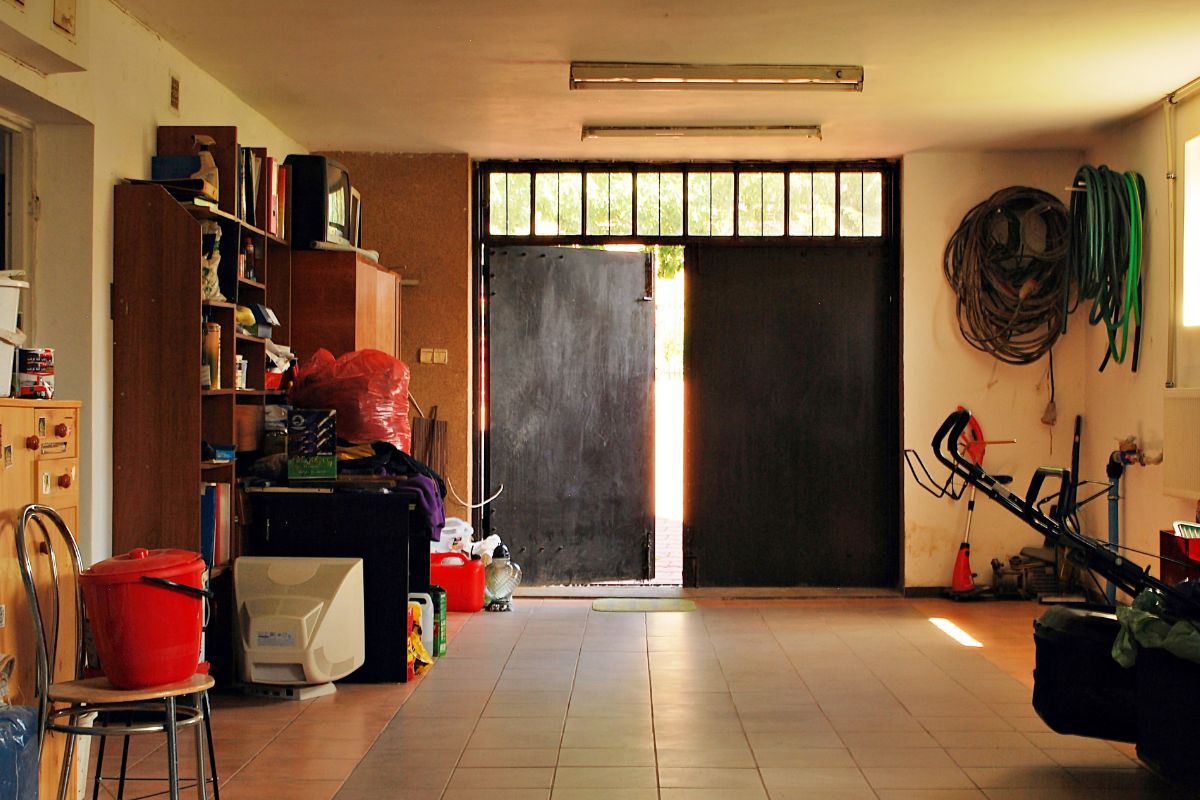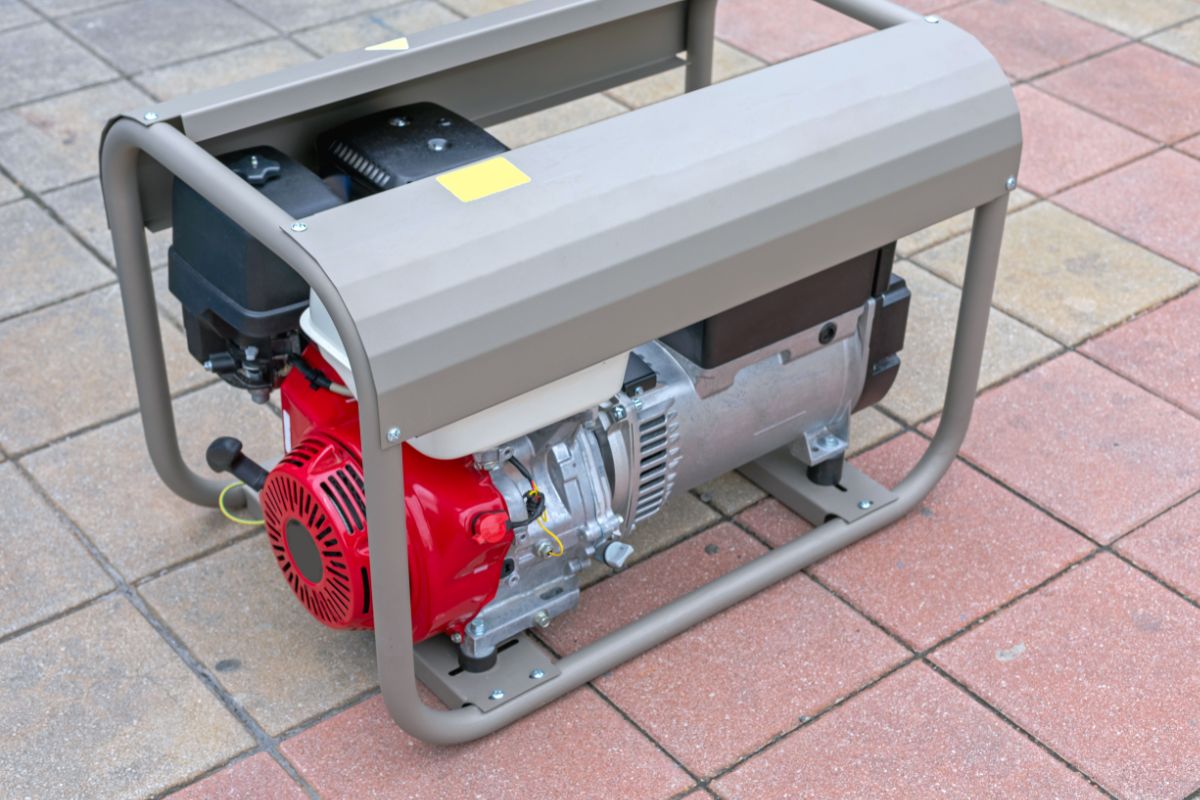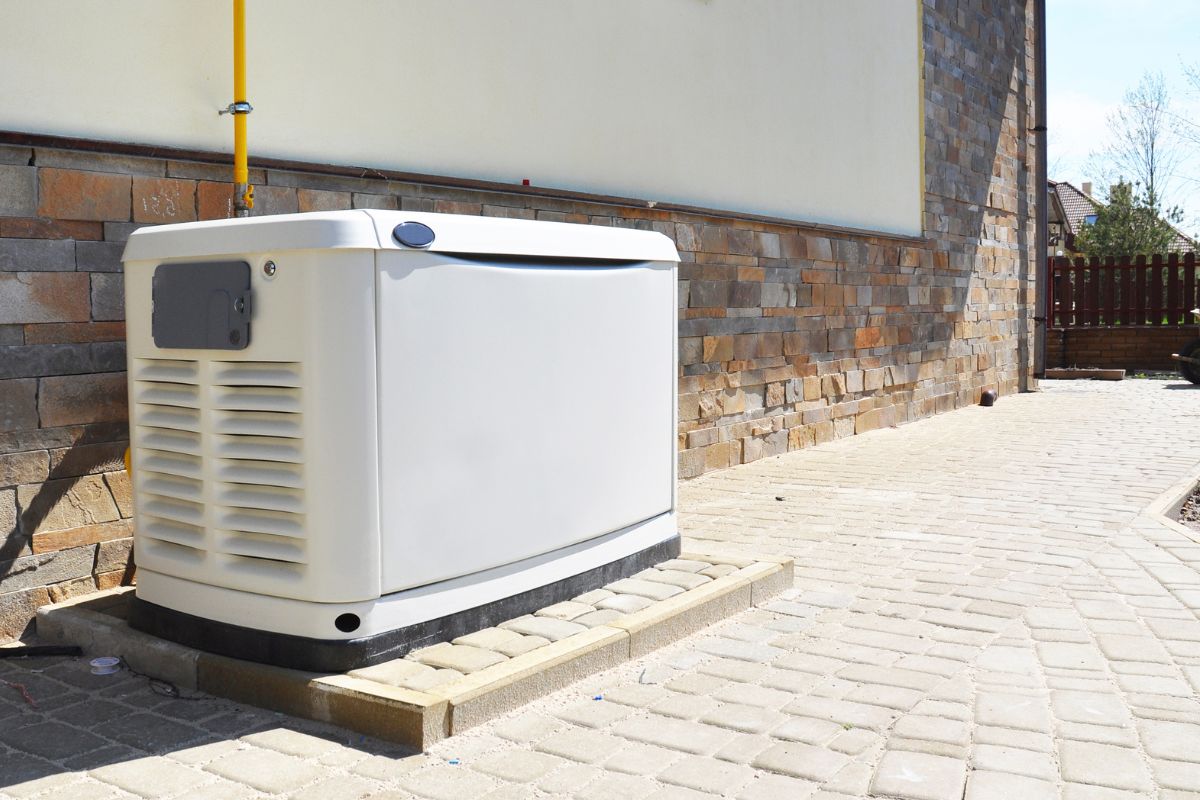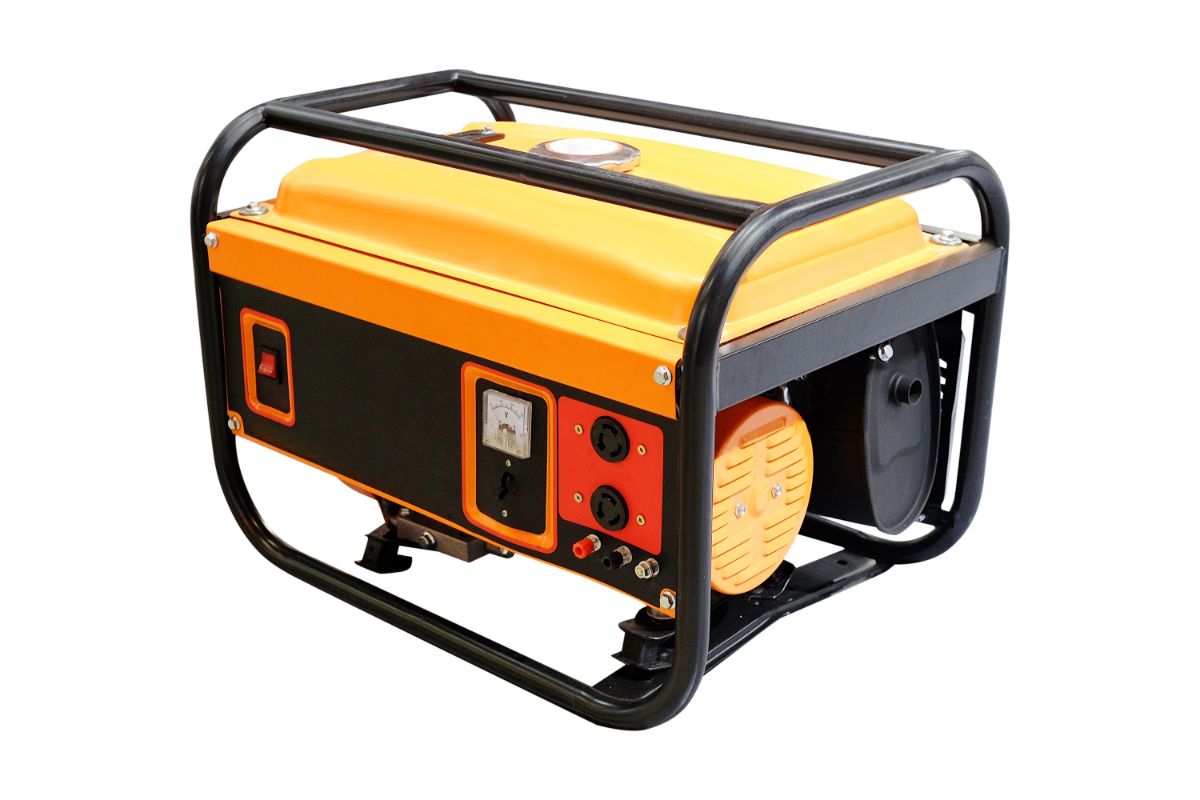Depending on your intended usage, when it comes to generators: the more powerful they are, the better.
Being prepared to run your whole house in the event of an emergency is a feat that not everyone can say they have achieved!
That being said, it can be difficult to know where to start looking, especially if you haven’t got much experience in the world of electronics.
There are so many, and each promises to be the best and brightest. How can you tell which is true?

Never fear: we’ve picked out four of our favorite models available on the market right now. They might be on the more expensive side, but for the dedicated preppers amongst us, you’ll be hard pressed to find better. These are the best of the best!
If you’d like to know more about the benefits of having a generator, or just what features help identify a good one, we’ve got you covered there too! Simply consult the clear, concise Buyer’s Guide to find all of the information you need.
Last but not least, there’s even a helpful set of Frequently Asked Questions from your fellow customers right at the end. As we’ve chosen the most commonly presented queries, we may well have covered some of yours, too.
Gotta Go Fast? Here’s Our Top Pick:
OUR TOP PICK
Champion Power Equipment 100111
EDITORS CHOICE
BEST VALUE
OUR TOP PICK
Champion Power Equipment 100111
Without a doubt, our number one choice for 15,000 watt generators is the 100111 model from Champion Power Equipment, which boasts up to ten hours of run time on a single tank of gasoline, at just 78 decibels (provided you’re 23 feet away).
Dependable and easy to use, the 717cc V-Twin Champion engine has an electric start, controlled using a reliable toggle switch.
There’s even in-built Cold Start technology for those especially freezing days. No more preheating for you!
In order to safely and easily transport the 100111, there’s a lift hook for safe, easy transport, as well as a folding handle and Never-Flat tires.
Whatever the method, you’ll be comfortable and totally in control during relocation.
With patented Volt Guard surge protection technology, accidental overload is prevented and your appliances kept safe.
Likewise, the locking GFCI outlets are protected from infiltration with dust and debris. You’re in excellent hands.
With a continuous Intelligauge keeping track of hertz, run-time and voltage, you can easily keep an eye on your output.
This is a machine built to impress, with an impressive three year limited warranty to ensure complete satisfaction.
Pros:
- 5.9 Gallon fuel tank – almost ten hours of power on just a single canister
- Impressively durable steel frame
- Vold Guard, Cold Start, Intelligauge and other useful features
- Electric start, batteries included!
Cons:
- Pretty loud, not really good for outdoor use if there are neighbors to annoy
EDITORS CHOICE
Generac 5734 GP15000
Combining full pressure lubrication and automotive style spin, the Generac 992c OHVI engine in this 5734 model considerably lengthens the lifespan of previous models, for a 15,000 watt generator you can depend on.
Okay, so it’s double the price of the Champion product above. That’s because the hugely impressive 16 gallon fuel tank found aboard the compact, wheeled frame of this automatic standby generator far outweighs its capabilities.
Offering low-maintenance, high-performance power, with enough wattage to run all of your necessary home appliances (and even some luxury ones), you’ll keep everything you need going, for as long as is necessary, with no mess or fuss.
It’s also much quieter than some of its competitors, with a low-tone muffler that blends into the background noise of your home with ease.
Seven circuit breaker protected outlets are shielded from overloads, providing smooth power all day.
As part of your purchase, you’ll receive an electric start (batteries included!), as well as a battery, your first oil supply, a maintenance kit, wheel kit, and of course, the necessary manual.
That’s everything you need to get started, right out of the box.
Pros:
- 16 gallon fuel tank, large and in charge
- Hardened steel tube cradle offers added durability – lifting eye for easy transport
- Electric startup is simple and batteries are provided
- All terrain wheels for maximum portability
Cons:
- Set up can be difficult, considering it weighs so much!
BEST VALUE
DuroMax XP15000E
Powered by DuroMax MX2 technology, offering the maximum power from every 120 volt outlet, the XP15000E is packed full of power.
Capable of handling your entire home’s range of outlets on 15,000 peak watts, you won’t regret this investment.
Run by an impressive 23HP, 713cc V-Twin engine, with all copper windings and a complete metal construction, all seven of its outlets run like a dream.
Thanks to the 10.5 GAL tank, you’ll have more than enough room for all the fuel you require.
Automatically shutting down when low oil measurements are detected, as well as lowering its RPMs when clearly not in use (to reduce noise and save fuel), this is ideal for construction sites or other areas requiring intermittent power.
Thanks to the inbuilt hoist bar, even though this gennie is on the heavy side, it’s easier to move than you might expect.
Alongside the built in wheels and push bar, these considerate features make your life a lot easier.
Rest assured that your pricey investment will be protected, with all the latest surge-arrest technology to avoid overloading and make sure all of your appliances stay in full working order, too.
Pros:
- Seven circuit-breaker outlets, with surge protection – total safety
- Full metal, sturdy hard wearing construction
- MX2 technology ensures the max power from every appliance
- Automatic shutdown once low oil measurement is detected
Cons:
- 380lb once fully assembled – an almighty unit!
RUNNER UP
A-iPower SUA15000ECV 15000 Watt Portable Gas Generator, Electric Start
With a high performance alternator to offer greater peak wattage and simultaneously operate all of your appliances, the A-iPower SUA15000ECV is a clever generator that’s conveniently certified as safe to use in all fifty states.
Given the Pure Sine Wave Technology (which produces less than 5% distortion, much less than competing gennies), there’s no need to worry when powering those more sensitive appliances. Everything you need to run will be absolutely fine.
An all steel, heavy duty construction fuel tank has 8 gallons of capacity, able to offer up to seven hours of continuous run time when running at 50 percent load.
This is more than enough to back up your whole house in the event of an emergency.
Likewise, the 680cc, 24HP OHV 4-stroke engine is twin cylinder, air cooled and boasts an electric start.
Whether used commercially or during outages, you can depend on its efficient, maintenance free output, delivering maxim starting power.
Ergonomically angled, easy to reach and user-friendly, the accessible control panel is able to show you exactly where your power is going at a glance, as well as how much fuel remains.
A costly initial investment, yes, but a worthwhile one!
Pros:
- Totally Pure Sine Wave technology, for the most precious of motorized appliances
- Greater peak wattage from high performance alternator
- Twin-cylinder engine with instant electric start
- Certified EPA/CARB compliant in all 50 states
Cons:
- Generates a lot of noise and heat – be careful where you position it
Best 15,000 Watt Generators Buying Guide
Why Use A Generator – Reasons To Invest
Perhaps the number one reason most people choose to get a generator is in case of emergency: keeping yourself and your family safe in the event of a power outage or similar problems is of paramount importance, especially if you live in an area that experiences them frequently or are especially off grid.
Should you have concerns about flooding or live in an area with regular heavy downpours, keeping that sump pump functioning is imperative: having a generator on hand means that it’ll always stay on, no matter what.
Live in a rural area? Whilst us city folk can count on the pressurized municipal faucets, you might have to depend on a well, and therefore its pump – keeping hydrated in the event of a power outage would require a gennie!When the grid goes down and stays down, your food is sure to spoil in a matter of days, so making sure your refrigerator is permanently powered on at all times means not wasting all of your groceries.
For those who love a bit of DIY, having a generator around means that there’s no need to recharge your old battery-powered cordless tools – just power up your heavy duty equipment, right there in the comfort of your home.
Picking The Right Machine: Factors To Consider
Size
The amount of space you have in your home (namely, your basement, as that’s where it’s likely to live!) is important when choosing your generator. It’s all well and good choosing a huge powerful one, but not if there’s nowhere to put it!
Some have a smaller footprint than others, even though they wield the same capabilities: be sure to triple check the manufacturer’s measurements to ensure your choice will definitely fit where it’s intended to go.
As 15,000 watt models, the gennies we’ve picked out are a lot bigger than the portable ones you might be more familiar with. Don’t worry if you need a less imposing model – it’ll still do the job just as well, if the power level is the same!
Fuel Type
It’s possible to get a generator that runs on diesel, gas or good old fashioned electricity. Whichever you prefer is up to you; each has their pros and cons in terms of cost, efficiency and storage requirements, so be sure to do your research.Those that run on liquid propane are typically the cheapest and greenest for navigating a whole-house operation, while a diesel model tends to be larger and best for more commercial situations. Gas works well in either scenario!
Power
We’ve set out our favorite 15,000 Watt generators, as we believe they pack more than enough punch to keep an entire household running, even those full up with families! You may require more or less wattage, however, depending on your needs.One of the key factors in picking out the right model for you is calculating how much wattage you’ll require. Is it just for your main appliances? Do you want to use absolutely everything? Are you just running a well or sump pump? Starting as low as 2,500 watts and getting as high as 50,000, it’s possible to find generators with multitudinous power levels. Of course, the better equipped it is, the more you’ll have to pay for it, so bear that in mind!
Durability
You want to keep this generator in tip top condition, for years to come, right? That should be easy if you’re hoping not to use it unless there’s an emergency, but you still need to make sure it can stand up to the tests of time.Picking out one that’s been built with high quality, stable, corrosion resistant materials will serve you well. Cheap and cheerful is not the way to go when it comes to backing up your household’s power, so any killer deals are too good to be true.
Noise
It’s inescapable that generators are, by design, quite a noisy affair. All of that gas burning requires considerable effort, and the more wattage being produced, the louder it’s going to be in general.That said, the higher-end gennies tend to have more noise-isolating, sound proofing qualities, so if you have a little more money to spend, consider investing in a more technologically advanced model. You won’t regret it!If you can only really afford an older, slightly less soundproofed model, there are plenty of ways to DIY a soundproofing box or reduce the noise produced. The craftier folks among us might be able to achieve near-silence for way less cash.
Portability
Maybe you want to use the generator in the comfort of your home, but perhaps you’re looking for something to power an RV, or keep you fueled up on camping trips? If that’s the case, you need to think about portability.A generator that has a handle and wheels is much easier to transport than one that doesn’t, no matter how heavy it is. You’ll get from A to B a lot quicker and run much less risk of causing any problems on your travels, too.You’ll also want to prioritize finding a model that’s small and lightweight enough to comfortably fit in the trunk of your car or a designated nook in your RV. Weighing you down too much will just cost you more in the way of fuel consumption.
Safety Features
When working with electricity of any kind, you want plenty of reassurance and peace of mind that all will go well. The very best generators can provide just that, with surge protection and similar features to ensure your safety at all times.Likewise, those with covered outlets, reinforced cables and reverse-polarity protection are great at preventing water, dust and other debris from damaging your generator. It’s better to be safe than sorry, after all!
Frequently Asked Questions
How many watts does a generator need to run a house?
In order to power the most essential appliances within an average sized home, it’s recommended you have at least 5-7,000 watts of power capabilities. This includes your refrigerator, security system, sump or water pump… the basic necessities.
When your intention is to power all of your smaller, more general appliances using extension cords and other methods (who wants to be without Wifi for more than a few hours, right?) you’ll need more power output.
We’ve recommended 15,000 watts as an ideal measurement to provide more than enough of a supply; you should be able to power your entire home, from top to bottom, for a good long time if necessary.
Why is my generator so loud?
Unfortunately, generators make quite a bit of noise by design. Our biggest and best suggestion is to position your gennie as far away from your general living quarters as is possible, so you hear as little of the grumbles and rattles as possible.
If you’ve opted for a cheaper model, it’s also likely to be louder, as they will have utilized less noise-dampening materials and accessories in the manufacturer to cut back costs. Upgrading to a bigger, better model might help if you can afford it.
As we’ve said, it’s possible to build a soundproofing system for your gennie yourself, but they’re also available to purchase if you have some extra cash to invest in your setup and are lacking in the necessary DIY skills to do so.
Is a gas or diesel generator better?
Given that the majority of rechargeable generators are battery operated, your best bet for peace of mind that your backup option won’t fail is to opt for a gas powered engine. Gas and diesel both have perks and downsides, so it depends!
Diesel models will tend to be more efficient, running for a longer period on less fuel than those running on gas. As a result, they are more expensive to purchase and will probably take up more space in your home.
Gas generators are, by nature, smaller and cheaper, but will also be noisier and harder to maintain. Your best bet is to opt for diesel or propane in our opinion, though of course not everybody has the budget for that. Try to shop wisely!










